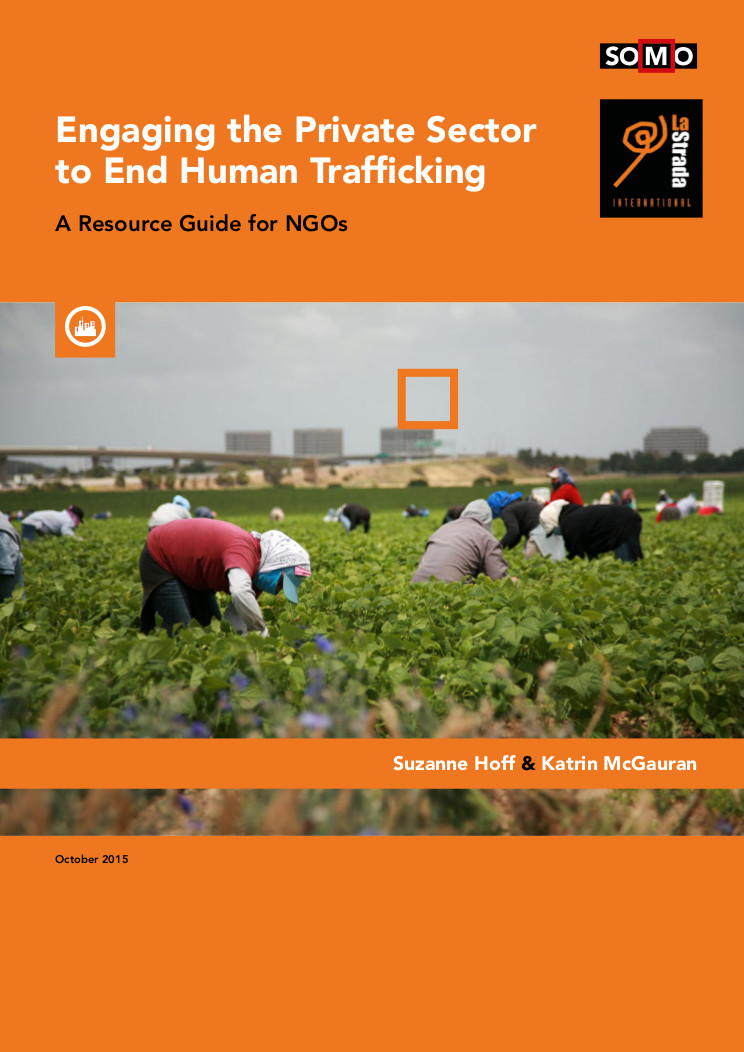
Engaging the private sector to end human trafficking: a new resource guide for NGOs
On the occasion of the European day against trafficking in human beings – held every year on 18 October – La Strada International and SOMO publish a resource guide for NGOs, entitled Engaging the Private Sector to End Human Trafficking.
‘Engaging the Private Sector to End Human Trafficking’
The role of businesses in human trafficking can range from being directly responsible for labour exploitation through coercive recruitment practices to being an important partner in prevention. The guide aims to provide NGOs with knowledge and tools to engage the private sector in their work by providing a wide selection of background materials, ranging from facts and figures to strategic advice.
European NGOs regularly come across cases of human trafficking and labour exploitation. In 2012, the International Labour Organisation (ILO) estimated that 880,000 people are in a situation of forced labour in the European Union (EU) alone. Forced labour and human trafficking occur across a wide variety of sectors in Europe, such as agriculture, construction, hospitality and care work. These sectors are largely dependent on migrant workers, who have less access to legal protection and also lack local support of friends and family.
Business, human rights and human trafficking
The United Nations (UN), ILO and EU are increasingly incorporating businesses in anti-trafficking work and regulation, and the UN Business and Human Rights framework has outlined clear responsibilities in this regard. Although the private sector has become seen as an important stakeholder in anti-trafficking work, European NGOs working in the field have as yet not started to fully engage corporations in their strategies and practices.
The Resource Guide
The Resource Guide aims to close that gap by providing guidance and background information for NGOs. Different vulnerable sectors and the role that corporations could potentially play in contributing to and preventing human trafficking are described. Steps are outlined that businesses can take to avoid contributing to human trafficking, based on existing guidelines and toolkits. The Guide explains UN, ILO and EU business and human rights frameworks and highlights their relevance to anti-trafficking work. Examples of private sector engagement from other NGO networks are given, ranging from campaigns for corporate justice and lodging complaints to NGO-business partnering and multi-stakeholder initiatives. The last chapter of the guide provides information on which strategies NGOs can pursue to engage the private sector to tackle human trafficking and to hold corporations accountable.
SOMO and La Strada International (opens in new window) believe that there is a clear need to engage the private sector in anti-trafficking work. NGO’s should think strategically and critically about the role of corporations in preventing and addressing human trafficking and define how they want to engage with them.
Download
Partners
Related content
-
‘Engaging the Private Sector to End Human Trafficking’ Published on:
 Katrin McGauranPosted in category:Publication
Katrin McGauranPosted in category:Publication Katrin McGauran
Katrin McGauran
-

-




